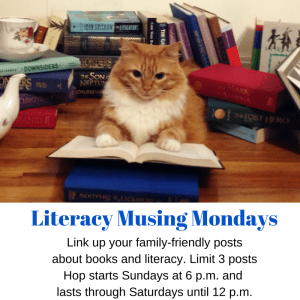I’ve mentioned before that I like reading the Bible through, for a number of reasons, but I don’t do it in a year’s time any more. I like to be able to stop when I want to spend more time digging in.
I like to really slow down in the NT epistles especially. Many of them are so short, they could easily be read in one sitting. But they’re so densely packed with truth you wouldn’t want to do that. Previously when I’ve come with them I’ve read the same one over several days in a row until I felt I had gotten a grasp on it.
For the past year or so a couple of friends have been posting when one of Warren Wiersbe’s “BE” Commentaries has come up on a sale for the Kindle app. I really enjoyed his 50 People Every Christian Should Know and With the Word: The Chapter by Chapter Bible Handbook , so I thought I’d look into these. He has written one for every book of the Bible. For larger books, like Genesis, he has taken 2-3 books to cover them. He has combined smaller ones together in one volume. I don’t have them all, but I’ve collected several.
Unfortunately I forgot I had them in my current trek through the epistles until I had already read a number of them.
I wish I had reviewed each one, but at the time, I thought, “How do you review a commentary?” But these are the ones I have read with some stand-out quotes from each:
 Be Ready (1 & 2 Thessalonians): Living in Light of Christ’s Return
Be Ready (1 & 2 Thessalonians): Living in Light of Christ’s Return
The Christian who is feeding others must be careful not to feed on the wrong things himself.
Paul also comforted them. This word carries the same idea of “encouragement,” with the emphasis on activity. Paul not only made them feel better, but he made them want to do better. A father must not pamper a child; rather, he must encourage the child to go right back and try over again. Christian encouragement must not become an anesthesia that puts us to sleep. It must be a stimulant that awakens us to do better.
How does God cause our love to “increase more and more”? By putting us into circumstances that force us to practice Christian love. Love is the “circulatory system” of the body of Christ, but if our spiritual muscles are not exercised, the circulation is impaired. The difficulties that we believers have with one another are opportunities for us to grow in our love.
The purpose of Bible prophecy is not for us to make a calendar but to build character.
Any teaching that encourages us to disobey another divine teaching is not Bible teaching.
 Be Faithful (1 & 2 Timothy, Titus, Philemon): It’s Always Too Soon to Quit!
Be Faithful (1 & 2 Timothy, Titus, Philemon): It’s Always Too Soon to Quit!
But many prefer the “vain jangling” (1 Tim. 1:6) of those who teach novelties rather than the pure Word of God that produces holiness in lives.
It is not enough for a local church to teach sound doctrine and to proclaim the gospel. The church must also defend the faith by exposing lies and opposing the doctrines of demons (1 Tim. 4:1).
The purpose of prayer is not to get man’s will done in heaven, but to get God’s will done on earth.
Not all unity is good, and not all division is bad. There are times when a servant of God should take a stand against false doctrine and godless practices, and separate himself from them. He must be sure, however, that he acts on the basis of biblical conviction and not because of a personal prejudice or a carnal party spirit.
“That they may lay hold on eternal life” (1 Tim. 6:19) does not suggest that these people are not saved. “That they may lay hold on the life that is real” would express it perfectly. Riches can lure a person into a make-believe world of shallow pleasure.
What germs are to a physical body, false teaching is to a spiritual body, the church.
Note his emphasis on the person of Christ: “I know whom I have believed.” Salvation is not the result of believing certain doctrines, though doctrines are important. A sinner is saved because he believes in a Person—Jesus Christ the Savior. Paul had deposited his soul in the care and keeping of the Savior, and Paul was sure that Jesus Christ would faithfully guard that deposit.
 Be Mature (James): Growing Up in Christ
Be Mature (James): Growing Up in Christ
The epistle of James was written to help us understand and attain spiritual maturity: “… that ye may be perfect and entire, wanting nothing” (James 1: 4). I like the way J. B. Phillips puts it: “… and you will find you have become men of mature character, men of integrity with no weak spots.”
In the Bible, patience is not a passive acceptance of circumstances. It is a courageous perseverance in the face of suffering and difficulty.
“A temptation is an opportunity to accomplish a good thing in a bad way, out of the will of God.
Christian love does not mean that I must like a person and agree with him on everything. I may not like his vocabulary or his habits, and I may not want him for an intimate friend. Christian love means treating others the way God has treated me. It is an act of the will, not an emotion that I try to manufacture. The motive is to glorify God. The means is the power of the Spirit within (“ for the fruit of the Spirit is love”). As I act in love toward another, I may find myself drawn more and more to him, and I may see in him (through Christ) qualities that before were hidden to me.
 Be Hopeful (1 Peter): How to Make the Best Times Out of Your Worst Times
Be Hopeful (1 Peter): How to Make the Best Times Out of Your Worst Times
Hope is not a sedative; it is a shot of adrenaline, a blood transfusion. Like an anchor, our hope in Christ stabilizes us in the storms of life (Heb. 6: 18–19), but unlike an anchor, our hope moves us forward, it does not hold us back.
The Word reveals God’s mind, so we should learn it; God’s heart, so we should love it; God’s will, so we should live it.
We do not study the Bible just to get to know the Bible. We study the Bible that we might get to know God better. Too many earnest Bible students are content with outlines and explanations, and do not really get to know God. It is good to know the Word of God, but this should help us better know the God of the Word.
It is necessary to understand that God is not going to replace suffering with glory; rather He will transform suffering into glory. Jesus used the illustration of a woman giving birth (John 16: 20–22). The same baby that gave her pain also gave her joy. The pain was transformed into joy by the birth of the baby. The thorn in the flesh that gave Paul difficulty also gave him power and glory (2 Cor. 12: 7–10). The cross that gave Jesus shame and pain also brought power and glory.
I’m currently working through Be Real (I John): Turning From Hypocrisy to Truth.
I’ve been going through a study Bible this year, so I’ll read one chapter of the epistle with the study Bible notes. Then the next day I’ll read the corresponding chapter in Wierbe’s book. If it takes him more than one chapter in his book to cover a chapter in the epistle, I’ll read one a day (sometimes half of one a day) until I finish with with however many chapters in his book it takes to cover that chapter in the epistle.
So, for example, on Monday I’d read the introductory material on 1 John from the study Bible, and on Tuesday I’d read the first chapter of 1 John with the notes from it. Wiersbe takes two chapter to cover 1 John 1, so I’d read those on Wednesday and Thursday – or I’d take longer if I need to. The important thing isn’t that I finish a chapter in a day, but rather that I take the time to read carefully and understand what I am reading.
So I feel this has worked well to slow me down in those short epistles and really take time to soak in them and put them together as a whole rather than reading isolated chapters.
I appreciate that Wiersbe’s tone is, as one preface says, “theologically sound but not overly academic.” He tends to take the passages in sections, explains what they’re about, relates them to the rest of the book, sometimes provides cross references and illustrations or examples.
My only criticisms are that some chapters do get a bit long and might have benefited from being broken down even further, and I wish that, as he discusses the chapter in smaller sections of a few verses at a time, he’d put those verses at the beginning of that section. It would just make it easier than having to go back and forth between the Bible and the commentary.
I haven’t yet used one of his commentaries on a longer book, but I am especially looking forward to the one on Ecclesiastes after reading Hope’s review of it. That book is a little different from the rest, so I’d appreciate his expertise in studying it. Incidentally, she has a Facebook page where she lists free or sale books for the Kindle at Worthwhile Books.
I think when I finish 1 John I might try to review it: if not I may just share pertinent quotes then.
At any rate, I wanted to make you aware of these resources. I’ve found them very helpful.
(Sharing at Semicolon‘s Saturday Review of Books and Literary Musing Monday)



Thanks for sharing these commentaries. I have a Life Application Bible with lots of good study notes which I use sometimes.
I always like your posts! I have the complete aet of his original “Be” series. I’d be happy to share!
Thank you for the overview of these commentaries! I have seen them but walked away! I think I will revisit them! I have His commentary on the New Testament so I know he is good!
I LOVE the Warren Wiersbe “Be Series” books! We have 6 hardcover books which contain the text of all of these books. Here’s the link to the set from Christianbook.com, which is where we got them years ago:
http://www.christianbook.com/the-bible-exposition-commentary-6-volumes/warren-wiersbe/9786125030474/pd/030474?event=ESRCQ
I often am reading the Bible, and say to myself, “Let’s see what Warren has to say about that!”
Pingback: What’s On Your Nightstand: September 2016 | Stray Thoughts
Pingback: Mount TBR Reading Challenge Checkpoint #3 | Stray Thoughts
I’ve been wanting to read some of the Wiersbe “Be” books. I’ve been collecting them on Kindle myself, and probably will read some throughout 2017. Thanks for sharing your thoughts!
Pingback: Mount TBR Reading Challenge Wrap-up | Stray Thoughts